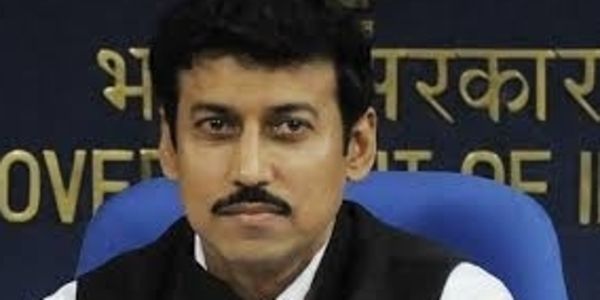National Sports Policy 2025 Approved : A Strategic Blueprint for India's Sporting Future
The Union Cabinet, chaired by Prime Minister Narendra Modi, has approved the National Sports Policy (NSP) 2025, a comprehensive and visionary roadmap for sports development in the country. This new policy replaces the outdated 2001 framework and reflects India’s rising ambition: to emerge as a global sporting power, capable of competing and hosting on the world stage, including the 2036 Olympic Games. Named Khelo Bharat Niti 2025, the policy doesn’t just target medal tallies. It envisions a sporting culture that is inclusive, economically sustainable, and deeply integrated into everyday life, education, and governance. It is the result of extensive consultations with ministries, states, federations, athletes, and citizens, ensuring that it is both rooted in ground realities and elevated by global aspirations. Excellence on the Global StageAt the heart of the policy lies India’s goal to achieve sporting excellence at international levels. The plan proposes early identification of talent, structured training programs, grassroots development, and world-class support for elite athletes. It also emphasizes the development of competitive leagues and professional infrastructure, not just in urban hubs, but in rural India as well. The policy puts special focus on upgrading coaching, strengthening the governance of National Sports Federations (NSFs), and encouraging the use of sports science, medicine, and technology to boost performance. It also aims to create a robust pipeline of trained professionals—coaches, support staff, and technical officials—to support athletes at every level.Sports as a Driver of Economic GrowthThe policy recognizes that sports can be an economic engine. It promotes sports tourism, encourages India to host major international events, and supports the growth of sports manufacturing and entrepreneurship. From promoting startups to building local ecosystems for equipment and technology, the government aims to turn India into a hub for sports innovation and commerce. Importantly, the policy invites the private sector to partner through PPPs, CSR contributions, and new funding models, bringing in investment, innovation, and efficiency.Empowering Society Through Sporting SpiritNSP 2025 views sports not just as a competition but as a powerful tool for social inclusion and community development. It introduces special focus programs to bring women, underprivileged communities, tribal populations, and persons with disabilities into the sporting fold. By revitalizing traditional Indian sports and integrating sports into education and career planning, the policy makes sports both a cultural identity and a career opportunity. It also seeks to engage the Indian diaspora through sports diplomacy, strengthening global connections. One of the most progressive elements of NSP 2025 is its alignment with the National Education Policy (NEP) 2020. Sports will no longer be an extracurricular activity; it will be a core component of school education. Teachers and PE instructors will receive specialized training, and students will have early exposure to structured sports systems, laying the groundwork for a new generation of physically literate citizens. More Than Just Medals and TrophiesBehind every policy are real people. This is not just about building stadiums or winning medals; it’s about changing lives. Whether it's a young girl in a tribal village discovering kabaddi, a para-athlete finding access to facilities, or an aspiring Olympian from a small town receiving scientific training, NSP 2025 puts human potential at the centre of its vision. The goal is clear: no talent should go unnoticed, and no dream should go unsupported. The National Sports Policy 2025 is not just a document; it is a national commitment. A commitment to recognize the power of sports as a force for national pride, personal transformation, economic growth, and social unity. With Khelo Bharat Niti, India is not just preparing athletes for the 2036 Olympics; it is preparing a nation to dream bigger, run faster, throw further, and stand taller on the world stage.

.jpg)
